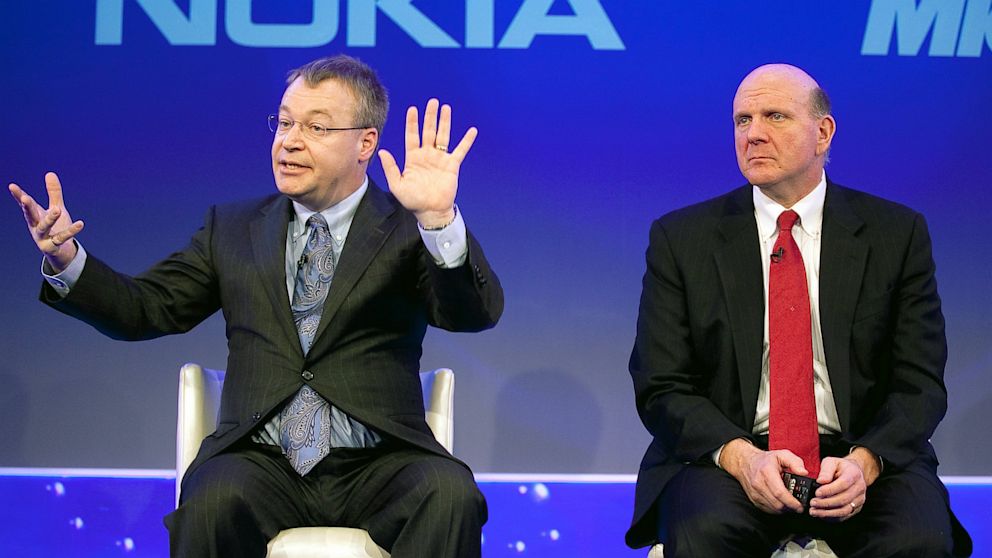Microsoft Buying Nokia's Devices and Phone Business for $7 Billion
Looking to strengthen hardware business, Microsoft buying Nokia's phone unit.

Sept. 3, 2013 — -- After years of a close mobile phone alliance, Microsoft has thrown down the cash to buy most of Nokia. With the transaction, Microsoft will buy Nokia's Devices and Services business for 3.79 billion euros (nearly $5 billion) and will pay 1.65 billion euros (about $2.17 billion) to license Nokia's patents, totaling 5.44 billion euros, or $7.17 billion.
The companies hope that the deal will strengthen both their positions in the mobile phone market where Apple and Google have runaway with the majority of smartphone market share in the past few years. Thirty-one million iPhones and 187 million Android phones were shipped in the second quarter of 2013, while only 8.7 million Windows Phone devices shipped, according to market research firm IDC.
"Now is the time to build on this momentum and accelerate our share and profits in phones," Microsoft CEO Steve Ballmer said in an email to Microsoft employees. "Clearly, greater success with phones will strengthen the overall opportunity for us and our partners to deliver on our strategy to create a family of devices and services for individuals and businesses that empower people around the globe at home, at work and on the go, for the activities they value most."
As part of the deal, which was announced late Sunday evening, Nokia CEO Stephen Elop and a handful of other Nokia top executives will join Microsoft. Elop will come back to Microsoft, after leaving in 2010 for Nokia, to lead the Device team. Jo Harlow will lead the smart devices team and Timo Tiokanen will oversee the Mobile Phones team. Microsoft CEO Steve Ballmer announced last month that he would retire within the next 12 months.
"We have some of the best products in the industry, but we need more combined muscle to truly breakthrough with consumers," Elop said at a news conference this morning at Nokia's headquarters in Finland. "With this transaction we can accelerate our current movement and gain a stronger financial backing to be more successful in the mobile market."
The two companies are not a surprising pairing because Nokia has been exclusively selling Windows Phone smartphones since 2012. Its line of Lumia smartphones have been hallmark Windows Phone devices for Microsoft.
"We can accelerate our current movement and gain a stronger financial backing to be more successful in the mobile market."
On the flip side, Microsoft has also begun to position itself away from being strictly a software company and more of a software and hardware company. The company last year released its own Surface family of tablets, rather than relying on their hardware vendors.
"Microsoft has said that it is transitioning from a software company to a 'devices and services' company," Avi Greengart, research director of consumer devices at Current Analysis, told ABC News. "If introducing a tablet that competes directly with other Windows licensees was not proof enough, buying Nokia's hardware division certainly brings the point home."
While it is too early for Nokia and Microsoft to talk about specific future products, Elop said the partnership will help "increase share through faster innovation and better products and unified branding and marketing."
While Microsoft says that it would still like to work with other phone makers, including Samsung and HTC, the move will likely push other smartphone makers who were making Windows Phones out of the market.
"Whatever flagging support Windows Phone had from Samsung and HTC will now either be further jeopardized or cut off," Ross Rubin, principal analyst for Rectile Research, told ABC News.
"As Nokia was willing to exclusively work with Microsoft, the two became such close partners that acquisition enabled less friction. Nokia was already, for all intents and purposes, Microsoft's handset vendor."
The Nokia acquisition is expected to close in the first quarter in 2014.




